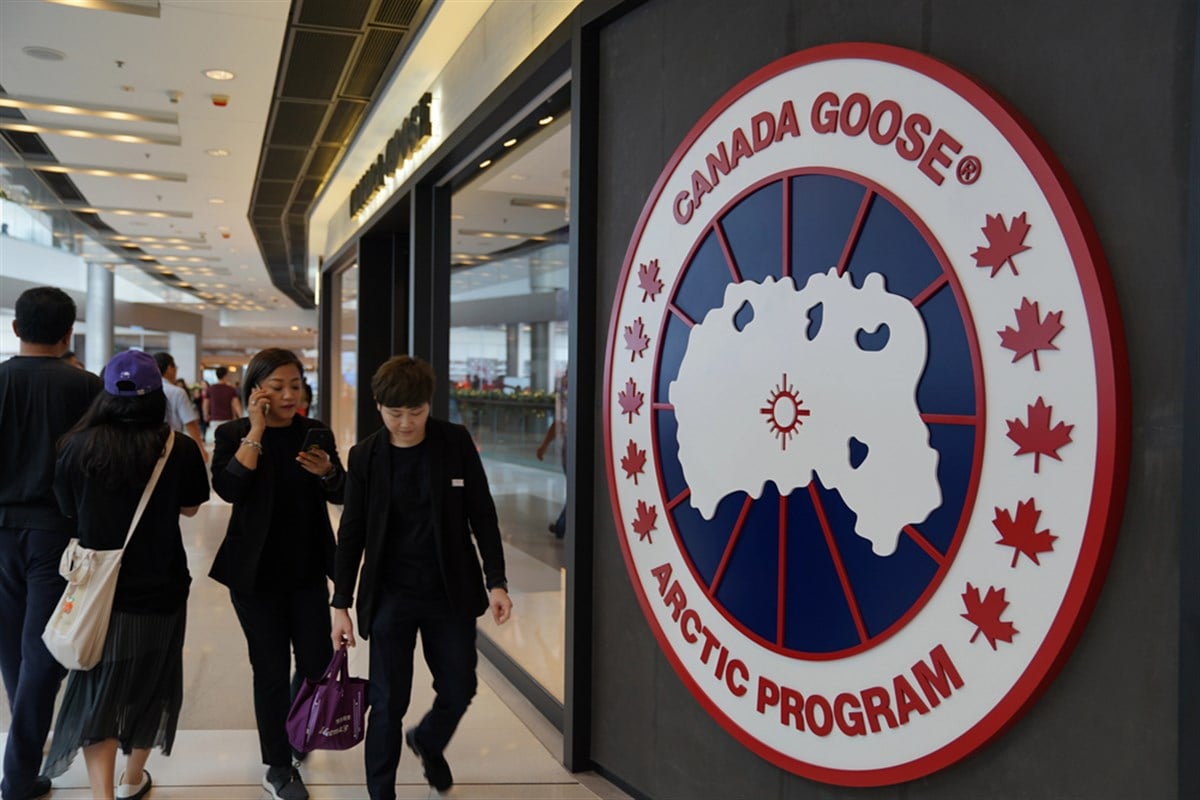
The retail apparel landscape has changed considerably. The days of thriving shopping malls are over, as they've been dying a slow death accelerated by the COVID-19 pandemic. Brick-and-mortar retail shops faced a dilemma with mandated store closings to either adopt digital innovation and embrace a direct-to-consumer (DTC) channel or get edged out by competitors. While DTC is usually referred to as digital and online sales, it also includes in-store retail sales at your stores. DTC basically cuts out the middleman wholesaler and retail partners.
While the pandemic is in the rearview mirror, the strategy of bolstering the DTC channel continues to mean the difference between a thriving top and bottom line and rising stock price or continued sales and margin contraction with the looming threat of obscurity.
Here are 2 premiums in the consumer discretionary sector that demonstrate how growing the DTC channel business can improve the bottom line of both the business and its shareholders.
Canada Goose’s Direct-to-Consumer Strategy Explained
The maker of premium $1675 goose-down parkas and $750 Journey boots, Canada Goose Holdings Inc. (NYSE: GOOS), suffered from an inventory glut like all the retail apparel makers after the pandemic. However, the company concentrated on bolstering its DTC channel while trimming inventory levels to maximize margins. The company's strategy was to reduce its wholesale partners while maintaining its brand identity as a fashion status brand with Millennial and Gen-Z consumers. Its high quality and authenticity helped to establish Canada Goose as the premium outdoor lifestyle brand consumers are willing to pay for. The brand's elasticity was proven to investors with its stellar fiscal Q4 2024 earnings report.
Canada Goose’s DTC Sales Rise 19% YoY
On May 14, 2024, Canada Goose reported fiscal Q4 2024 EPS of 14 cents, beating consensus estimates by 4 cents. Revenues surged 22% YoY to $262.9 million, beating consensus estimates by $30.85 million. DTC sales rose 19% YoY to $199.38 million, and comparable sales rose 3.5% YoY. Higher digital sales in North America and Asia Pacific drove the DTC channel. The wholesale channel sales fell 9% YoY to $30.40 million. It's significant to point out that DTC sales account for 75% of total sales for Canada Goose.
Canada Goose: Not Abandoning Brick and Mortar
While its online DTC business is thriving, Canada Goose is not ditching the brick-and-mortar model. DTC is an omnichannel strategy comprised of both online sales and in-store sales at your own branded brick-and-mortar location. The company opened 3 new brick-and-mortar stores in the quarter, bringing the total store count to 68. The strategy here is to reduce the number of wholesale partners and inventory to continue increasing the exclusivity of its products.
Canada Goose plans to keep opening retail stores at a much slower pace of 3 a year versus 17 stores last year. DTC sales are expected to grow in the low single digits in fiscal 2025, while wholesale is expected to fall by 20% YoY.
Canada Goose analyst ratings and price targets are on MarketBeat. GOOS stock is up 22% YTD.
Ralph Lauren Beats Consensus Estimates
The maker of Polo shirts and over 10 brands that embrace the spirit of the American Dream lifestyle, Ralph Lauren Co. (NYSE: RL), reported a stellar fiscal Q4 2024 earnings report, beating consensus estimates by 4 cents. While Ralph Lauren often partners with premium retailers like Macy’s Inc. (NYSE: M) and Nordstrom Inc. (NYSE: JWN) and even discount retailers like Ross Stores Inc. (NASDAQ: ROST), they continue to grow the DTC channel.
Ralph Lauren's Growing DTC Channel at Full Price
In fiscal Q4 2024, Ralph Lauren grew its global DTC sales by 6% YoY. This was driven by continued brand elevation and full pricing, as average unit retail (AUR) performance rose double-digit. Its domestic brick-and-mortar stores saw a 6% YoY sales increase. Incidentally, digital sales reflected a 4% YoY drop. North American wholesale revenues dropped 2%. The company expects full-year fiscal 2025 total revenues to climb 2% to 3%.
The core of its Accelerate Plan is the strategy to grow its long-term DTC channels for high margins. The DTC channel now accounts for two-thirds of its total revenues, up from 50%.
Ralph Lauren CEO Patrick Louvet commented, “In fiscal '24, we added over 5 million new consumers to our DTC businesses, consistent with our long-term expectations. Our brand consideration, purchase intent, and especially our net promoter scores all increased last year, led by next-generation under 35 consumers and women. And we grew our followers on social media by low-double digits last year to over 58 million, led by Instagram, Line, Douyin and TikTok.”
Ralph Lauren analyst ratings and price targets are on MarketBeat. RL stock is trading up 29.6% YTD.